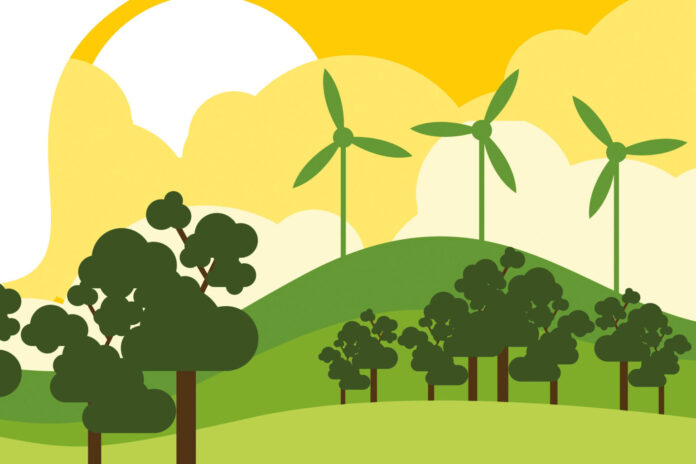
Q: I’ve been reading with a bit of panic about the coming collapse of the Gulf Stream. Is this a proper focus for my climate anxiety?
A: Stories in the papers a few weeks ago about the impending collapse of the Gulf Stream – possibly as early as 2025, according to one study – might justifiably make us all a bit nervous. But this is only one study.
“It’s not going to collapse tomorrow,” say Dr. Peter Thorne, Professor of Physical Geography (Climate Change) at Maynooth, and director of ICARUS, The Irish Climate Analysis and Research Unit. The Gulf Stream, which is part of the surface branch of the Atlantic meridional overturning circulation (Amoc), is the warm ocean current system in the Atlantic, stretching from the Gulf of Mexico across the Atlantic to Europe, keeping the climate here milder than it would otherwise be. If it did collapse, it would mean large-scale changes for the climate of Ireland and northwest Europe.
“We know from geological records that it has, in time, and occasionally in the past, collapsed,” explains Thorne. To calm your anxiety, instead of looking to a single paper, Thorne suggests listening to broader intergovernmental panel assessments of studies on climate change, which have “low confidence” it will collapse this century. There’s no need to “make economic or other decisions at this juncture,” says Thorne. “The science is not there.”
While we know it can collapse, what we don’t know is “how far is too far” for us to push the climate system. Thorne explains that the Gulf Stream is just one of several “tipping points,” along with, for example, the collapse of Greenland’s ice cap or the West Antarctic ice cap (which may already have tipped).
“We know those tipping points, those boogie monsters, are out there; we don’t know when we’ll tip them,” Thorne says. “The reality probably is, we won’t know if it’s going to collapse until it does.”
A Gulf Stream collapse would bring “a wholescale shock to the Irish economy and society,” says Thorne. “We would have a much colder winter half year and we might adversely have a much warmer half year. We would probably have much stormier weather as well,” with drier summers. If it did happen, “it would happen very quickly and it would have rapid and wholesale effects on, for example, the agriculture sector,” which is already impacted by the climate. It would put at risk the “viability of much of our infrastructure and agricultural model, a whole host of things,” says Thorne.
Longer, colder winters would force change on the current farming model, for example, we would have to rapidly destock cattle and something like 50% of land would need to be used to produce fodder for the remaining herd over longer winters, says Thorne.
‘EVERYTHING WE DO MATTERS’
For now, incorporating adaptation and mitigation measures – many of which are already available to us – will increase our resilience to climate changes or provide “future-proofing.”
“The best we can do is reduce greenhouse gas emissions, reaching net zero as quickly as possible,” says Thorne. He reminds us, reaching net zero is challenging and requires large-scale change, but many of the personal actions you can take yield tangible benefits. Think of ensuring your property is A-rated and isn’t leaking heat, retrofitting, limiting travel, and going solar, all steps that Thorne notes also protect you from much of the cost-of-living crisis.
“We are very poor at doing things like thinking through the economics,” he says, pointing to the electric car, which “looks expensive,” but, over the course of five years, when you consider tax, insurance, fewer garage costs, and using night rate at home, you actually save.
“Ultimately it’s up to all of us, everything we do matters, every action matters, every inaction matters, it all sums up at the end of the day,” he says. “It might feel inconsequential to you as an individual, but this is the sum of eight billion individuals driving the problem.”
On the agricultural front, we “need a diversified rural economy with more distinct modes of production,” for both the climate and for the economy. “If we diversify, we are more robust to all kinds of shocks arising from the natural world, from social to geopolitics.”
While “our individual decisions sum to global emissions,” Thorne adds, it’s not to absolve government or industry, which also needs to “very rapidly play their part.” But, “you can’t just throw your hands up in the air. To say we have no power is wrong… there is a huge amount that is down to our personal choices. We do have agency.”
THE ‘DECADE OF ACTION OR INACTION’
With a note of optimism, Thorne points out that staying away from some of these tipping points doesn’t require magical thinking.
“We know that everything we need to reduce emissions by 50% by 2030 exists already,” the only question is, “do we have the societal, political, and economical will to make that happen, and can we do it in a way that leaves no one behind.”
“This is the decade of action or inaction,” Thorne says. “It will determine, not just for our children and grandchildren, but the climate that people will face for thousands of years to come. It’s up to us.” All of us.
Otherwise, we might be in for some stormy weather.
Direct your eco related queries for Alissa to info@avondhupress.ie (with ‘Alissa’s Eco-advice’ in the subject line)











